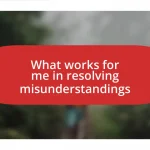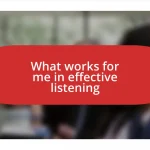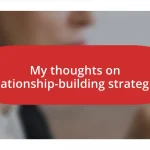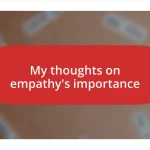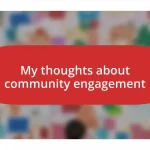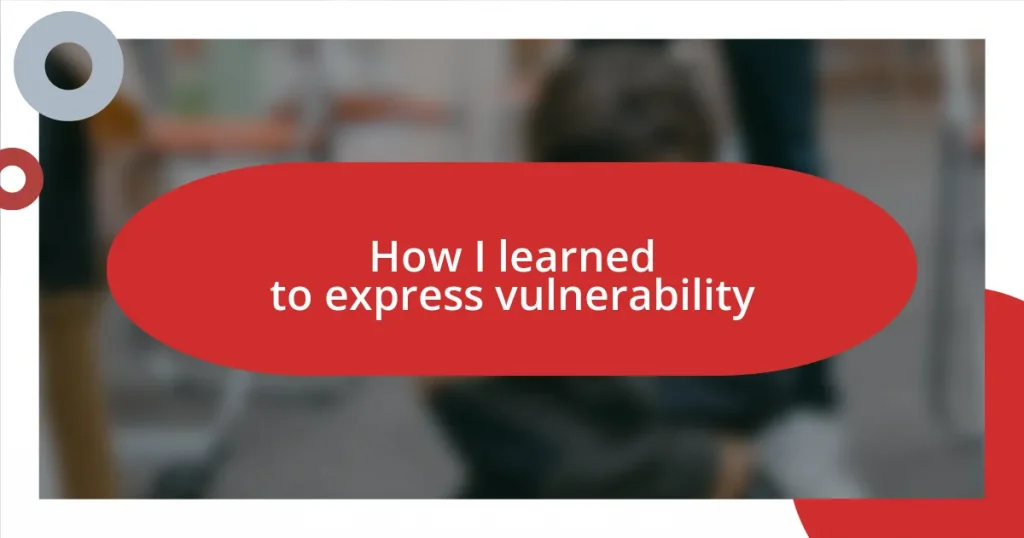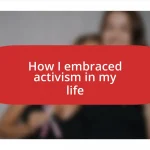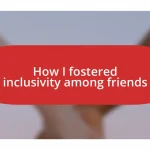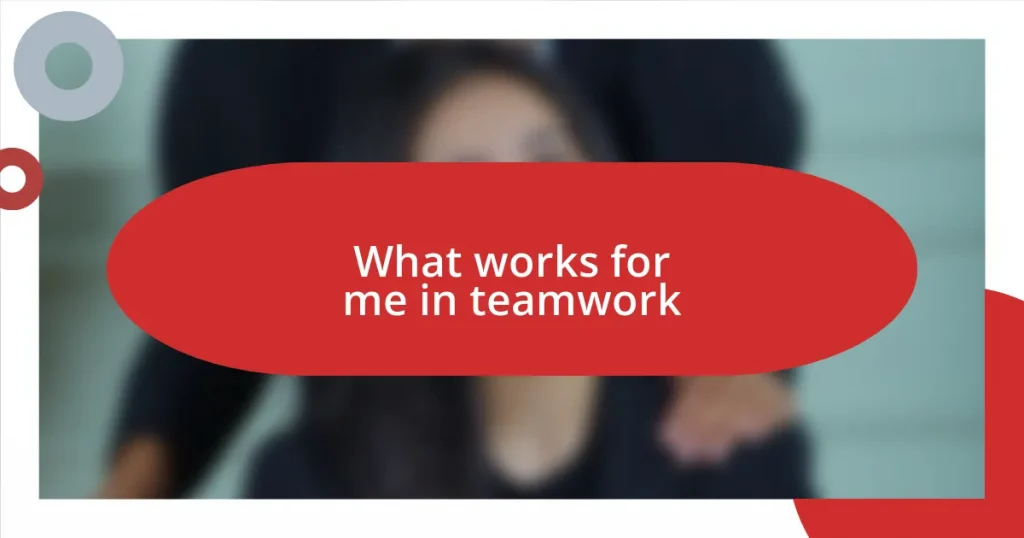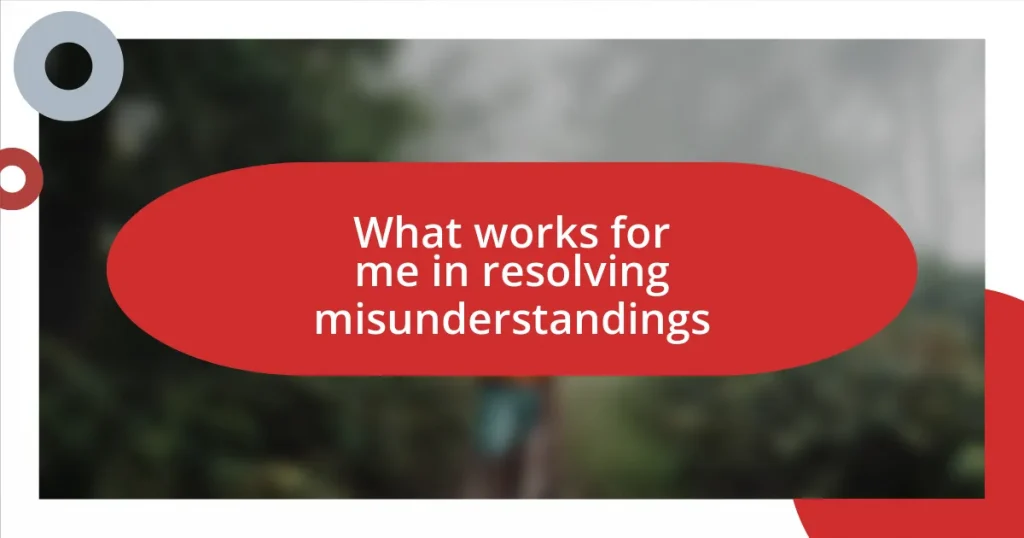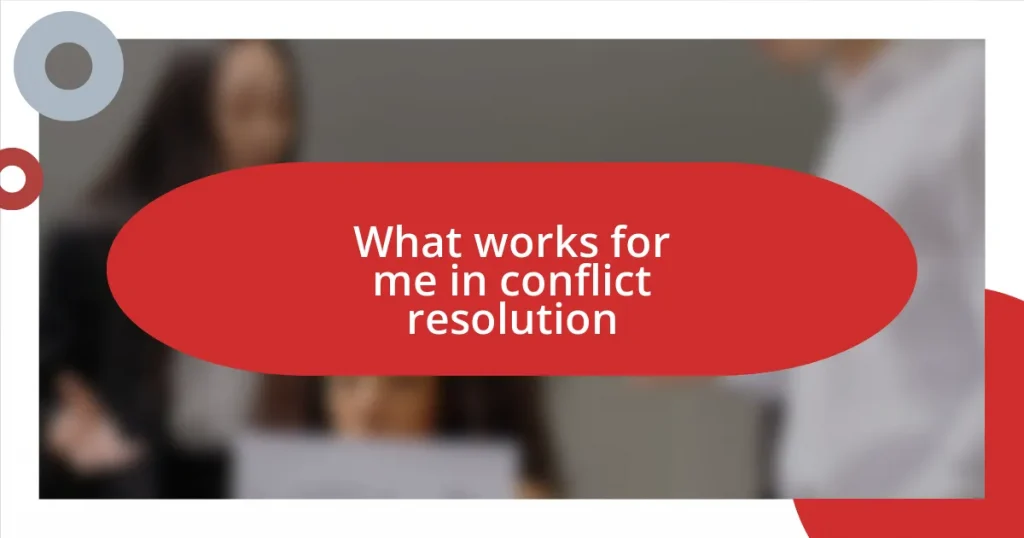Key takeaways:
- Vulnerability fosters genuine connections, as sharing fears and struggles often leads to empathy and support from others.
- Personal experiences with vulnerability, such as admitting anxieties or setbacks, can strengthen relationships and promote a sense of community.
- Practices like journaling and creative expression help clarify emotions and facilitate deeper connections with others.
- Choosing vulnerability is an act of bravery that can inspire courage and honesty in oneself and those around them.
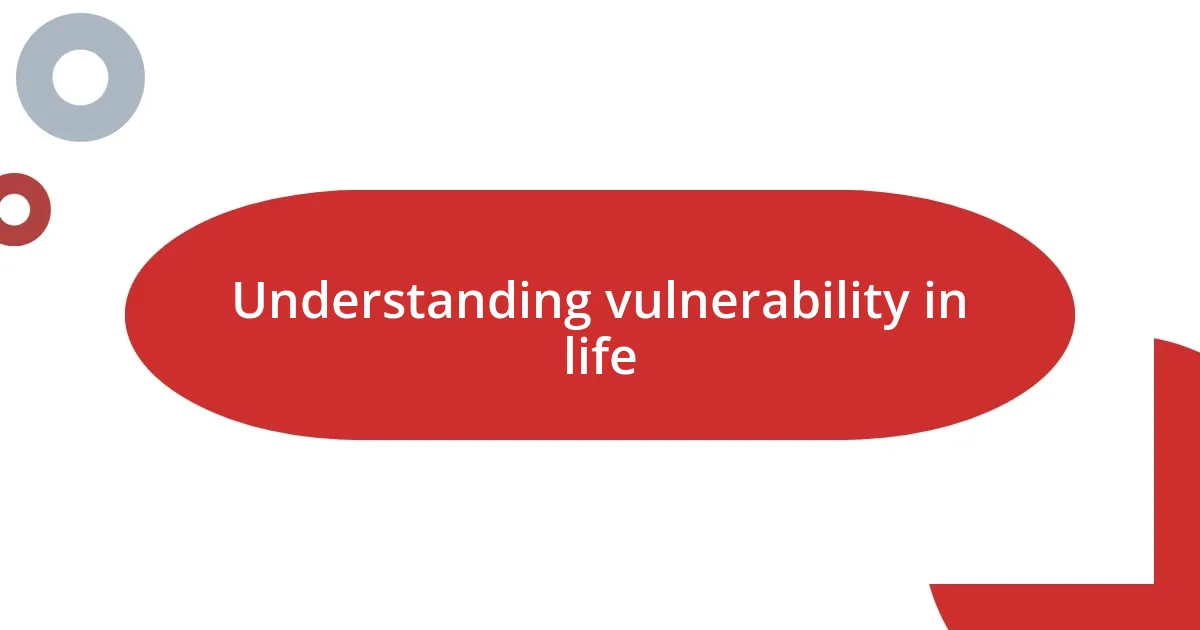
Understanding vulnerability in life
Vulnerability, to me, has always felt like standing on a tightrope. I recall a time when I shared my deepest fears with a close friend, and instead of judgment, I found empathy. In those moments, I learned that showing my true self didn’t lead to rejection; it led to connection. Isn’t it fascinating how revealing our struggles can create a bond stronger than any façade?
I remember grappling with the fear of being seen as weak. But over time, I realized that vulnerability isn’t about weakness—it’s about the courage to be authentic. I began to ask myself, what if embracing my imperfections not only liberated me but also inspired others? It became clear that life’s most meaningful moments often arise from being open and sincere.
Recently, I’ve found that vulnerability can be a powerful catalyst for growth. When I started a new job, I openly admitted my uncertainties during team meetings. To my surprise, my colleagues responded with their own doubts and experiences, transforming our discussions from surface-level chatter to deep, impactful conversations. Doesn’t it make you wonder how much richer our lives could be if we all chose to be a little more vulnerable?
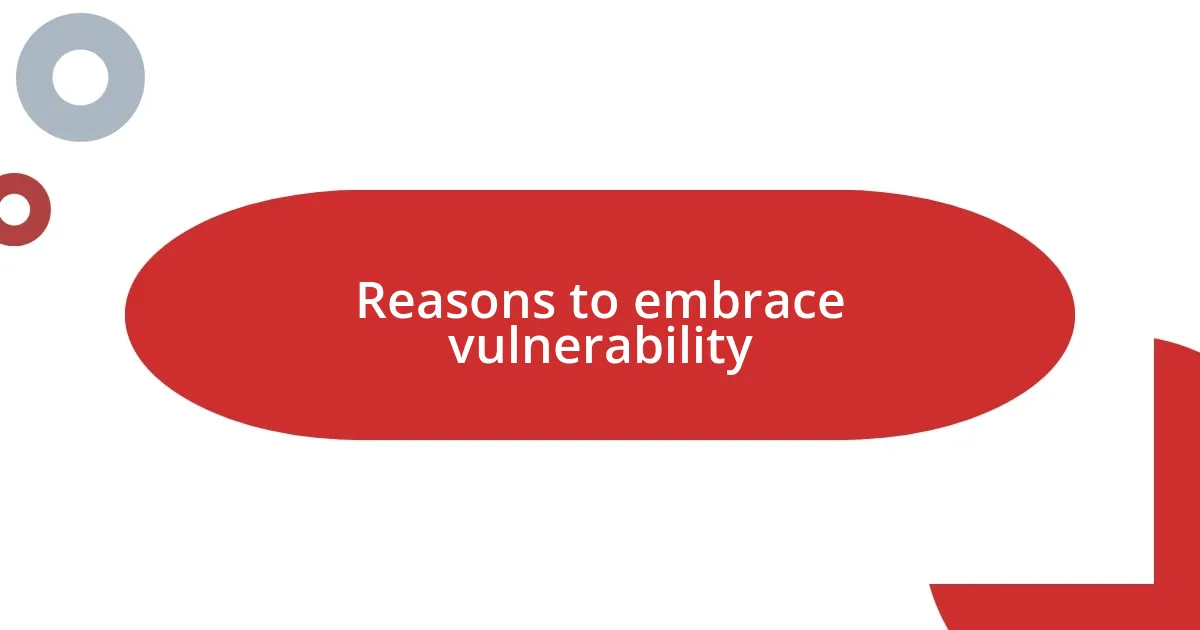
Reasons to embrace vulnerability
Embracing vulnerability opens the door to authentic connections. I’ve found that when I let my guard down, I invite others to do the same. For instance, during a recent group project, I confessed my anxiety about presenting. That simple admission sparked a wave of camaraderie, as teammates shared their own nerves. We ended up not just collaborating but building a supportive environment where everyone felt valued.
Here are some compelling reasons to embrace vulnerability:
– Fosters Genuine Relationships: Being open encourages trust and deeper bonds with others.
– Promotes personal growth: Exposing our flaws and uncertainties allows us to learn from experiences.
– Encourages empathy: When I share my struggles, I often find others sharing theirs, creating a collective understanding.
– Reduces anxiety: Acknowledging vulnerability can lessen the pressure to appear perfect.
– Inspires others: When I share my truths, I’ve noticed it empowers others to voice their own realities, creating a domino effect of honesty.
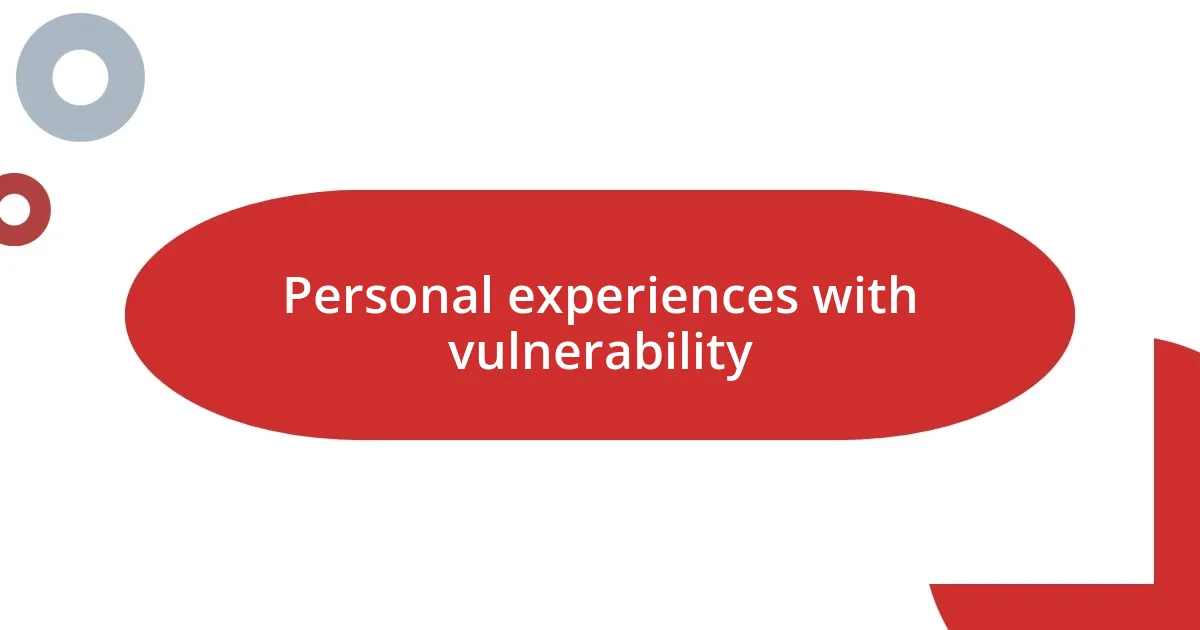
Personal experiences with vulnerability
I’ve had my share of stumbling blocks when it comes to vulnerability. I remember a moment during a family gathering when I unveiled my struggles with anxiety. Instead of the awkward silence I feared, my relatives opened up about their own challenges. That unexpected wave of shared vulnerabilities was a reminder that being genuine can build unshakeable ties with those around us.
Sometimes vulnerability feels like a rollercoaster ride. When I took a leap of faith and shared my passion for poetry in a small group, I was terrified of judgment. What surprised me was the wave of encouragement that followed. The experience taught me that being vulnerable can invite unexpected support and understanding from others, transforming fear into a sense of belonging.
I still recall a time when I faced a setback in my career. Instead of putting on a brave face, I chose to confide in my mentor. This act of openness paved the way for a candid discussion about failure and growth. It was a profound realization; my vulnerability not only helped me but also encouraged my mentor to share his candid experiences, deepening our connection and mutual trust.
| Experience | Description |
|---|---|
| Family Gathering | Opened up about anxiety; sparked shared vulnerabilities. |
| Poetry Sharing | Shared passion; received unexpected encouragement. |
| Career Setback | Confided in mentor; led to candid discussions on failure. |
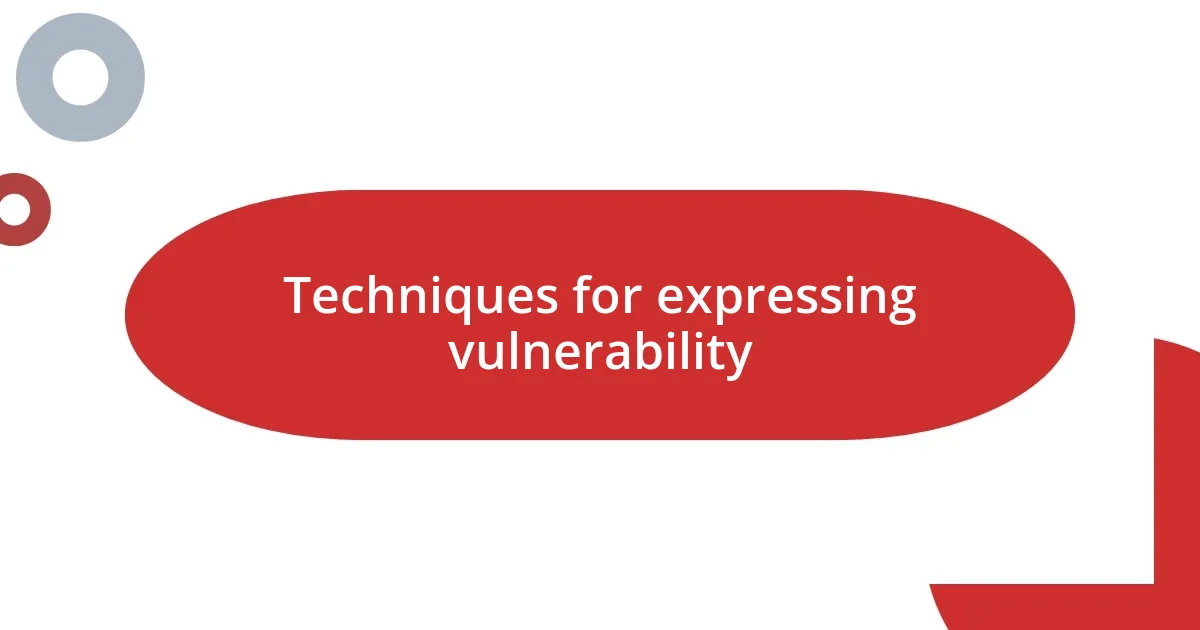
Techniques for expressing vulnerability
One technique that has really resonated with me is the practice of journaling. When I first started writing down my thoughts, I felt a weight lift off my shoulders. It became a safe space where I could express the emotions I often kept bottled up. Have you ever considered how putting pen to paper can clarify your feelings? For me, it transformed my understanding of vulnerability, illustrating that being honest with myself paved the way for deeper connections with others.
Another approach I’ve found helpful is sharing small vulnerabilities in everyday conversations. For instance, I might casually mention that I’m struggling with balancing work and personal life. This not only makes me feel more connected to those around me but also opens the door for others to share their experiences. It’s amazing how a simple comment can resonate, don’t you think? Once, after a casual chat about my juggling act, a friend admitted they felt the same, and just like that, we bonded over mutual struggles.
Finally, I’ve had success with vulnerability through creative expression, like art or music. When I painted a piece reflecting my feelings about a difficult breakup, it wasn’t just cathartic; it also allowed me to share a part of myself with friends later during an exhibit. As I narrated the story behind the piece, I felt the walls of reservation crumble. How often do we underestimate the power of creativity as a means of connection? For me, it was a powerful reminder that vulnerability doesn’t just reveal our struggles; it also shines a light on our strengths.
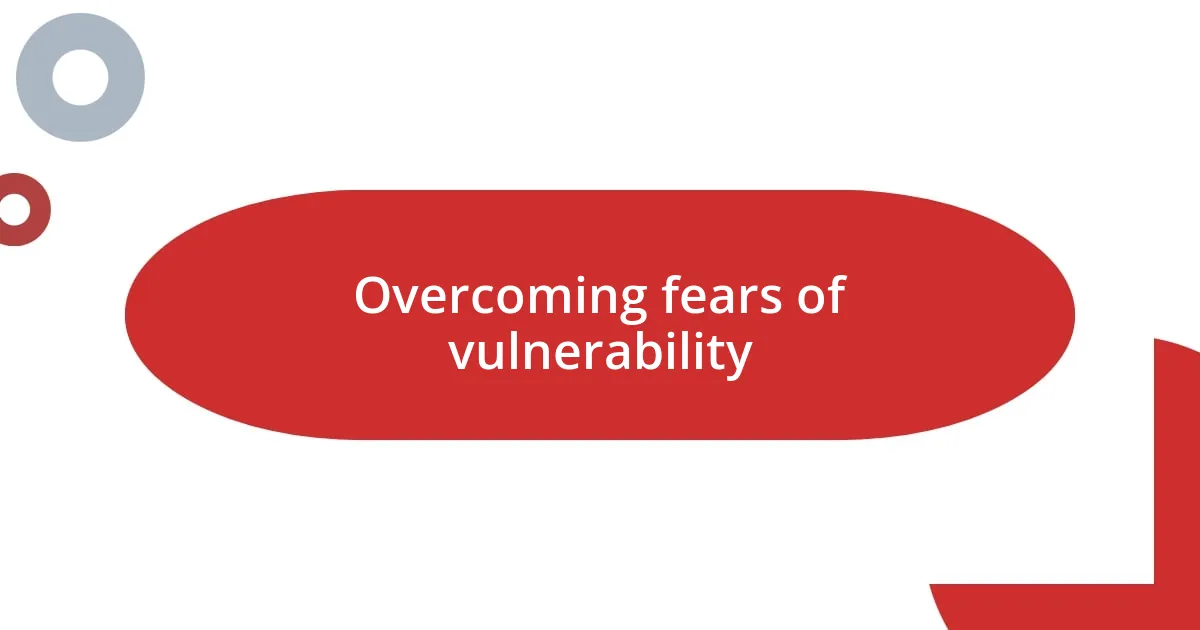
Overcoming fears of vulnerability
I used to think that my fears around vulnerability were unique to me. But as I started exploring these fears, I discovered many shared experiences from friends I hadn’t realized were struggling too. For instance, during a cozy movie night, I mentioned my nerves about an upcoming presentation. To my surprise, one friend opened up about a similar anxiety, and just like that, our connection deepened. Isn’t it fascinating how one simple admission can shatter the wall of isolation?
There was also a pivotal moment during a workshop I attended on personal growth. I held back, terrified of what others might think if I shared my story. But when I finally took that leap, the collective sigh of relief in the room was palpable—many had been waiting for someone to break the ice. It’s funny how vulnerability creates a ripple effect, encouraging others to step out of their comfort zones. Does that liberating sense of community resonate with you too?
I learned that embracing vulnerability doesn’t mean a lack of strength. Instead of seeing it as a weakness, I’ve come to view it as an act of bravery. After I confessed my struggle with self-doubt to a trusted colleague, it sparked a heartfelt conversation about our fears and aspirations. It reminded me that being candid can cultivate a rich tapestry of support and understanding. How often do we miss opportunities for connection because we shy away from sharing our true selves? I realized that choosing vulnerability not only fosters deeper relationships but also inspires courage in ourselves and others.
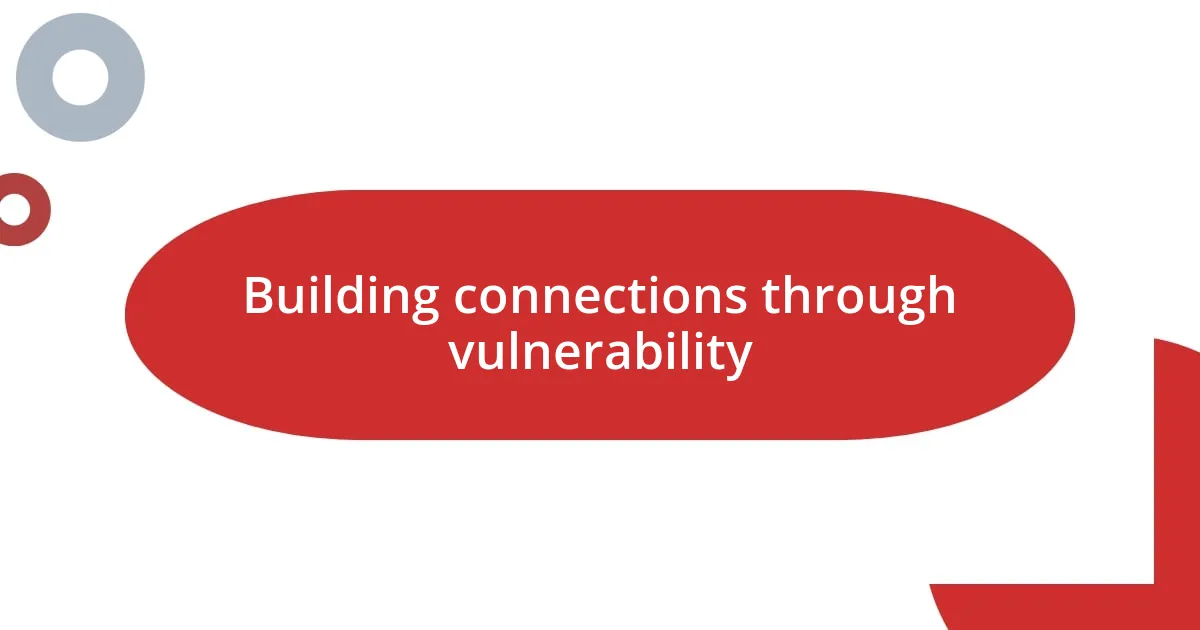
Building connections through vulnerability
Opening up about my vulnerabilities has, surprisingly, led to some of the richest connections in my life. I remember sitting in a café, chatting with someone I barely knew, when I let slip my fears about stepping into leadership roles. Their eyes lit up—a shared struggle emerged. It reminded me how admitting a fear or weakness can transform a simple conversation into something profound. Have you ever wondered how such revelations can invoke a sense of camaraderie almost instantly? It’s as if vulnerability acts like a key, unlocking doors to mutual understanding.
There was one memorable time at a gathering where I spoke candidly about feeling overwhelmed by expectations. The room went quiet, and I braced myself for judgment. Instead, one by one, people began to chime in with their own tales of pressure and doubt. That’s the magic of being vulnerable; it tends to create a domino effect. Isn’t it remarkable how our individual experiences can resonate deeply with others, creating a web of connection?
Vulnerability is not merely about sharing woes; it’s also a celebration of our authentic selves. During a small group discussion, I chose to share my journey with mental health—a topic that many shy away from. The result was nothing short of heartwarming. It fostered trust among us and opened the floor for honest dialogues about our triumphs and struggles alike. I left feeling buoyed, and it made me appreciate how revealing our true selves can forge bonds that feel almost unbreakable. Have you experienced that transformational power of honest conversation in your own life?

